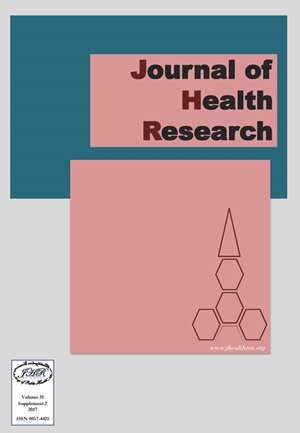Customers Satisfaction and Core Competency on Service-Minded among Frontline Staff of the Department of Medical Sciences, Ministry of Public Health, Thailand
Keywords:
Core competency, Customer satisfaction, Quality of service, Human resource management, ThailandAbstract
Background: Regarding to the national strategies, the changing in public sector in order to promote innovative and effective response to public demand, to be trusted worldwide, to become good governance under public conscious and to sustain prosperity are the core competencies of Thailand 4.0 reform. Apparently, quality management system and individual development plan are tools that allow organizations to identify the environment both inside and outside in response to the changing in an increasingly competitiveness environment. This research focused on customer satisfactions on service-minded and core competencies of frontline staff in the Department of Medical Sciences, Ministry of Public Health, Thailand. The evaluation depends on the scope of questions in order to measure both internal and external perspective.
Methods: The research was a cross-sectional descriptive study with 174 customers. Thirty frontline staff and 3 key executives of the Department of Medical Sciences, Ministry of Public Health, Thailand were recruited as participants. The questionnaires were separated into 2 groups of participants: customer and staff. The data collection was performed from May to June 2017. Descriptive analysis and Pearson's Chi-square test for statistic were used. Semi-structured questionnaire was used in the in depth interview for the core competencies of service-minded.
Results: There were 110 (63.2%) male customers and 64 (36.8%) female customers. Most of them were age 30-39 years old. About 118 (68.0%) of customers graduated at the university level. Most of customers 154 (89.0%) have been working for private sectors. The highest strongly satisfy was providing onsite services; and the highest strongly confidence to frontline staff was working faithfully. Out of 30 frontline staff, 25 (83.3%) frontline staff were female; and 5 frontline staff (17.0%) were male. Most of frontline staff were age 20-29 years old; and they obtained bachelor’s degree. The most frontline staff 19 (63.3%) were government employees. From the in-depth interview of frontline staff, they should be encouraged to improve service mind.
Conclusion: Regarding to core competencies on service-minded, the highest level of customer satisfaction and confidence in quality of services in subject areas of process/provided procedure and service to the public interest were found. In addition, the highest level in satisfaction to human resources of frontline staff was found in subject areas of human resource (HR) efficiency. The customer satisfactions on service-minded and human resources satisfactions of frontline staff were statistically significant (p<0.001). Regarding in-depth interview, key executives supposed that frontline staff should make service minded individuals as the priority task.







